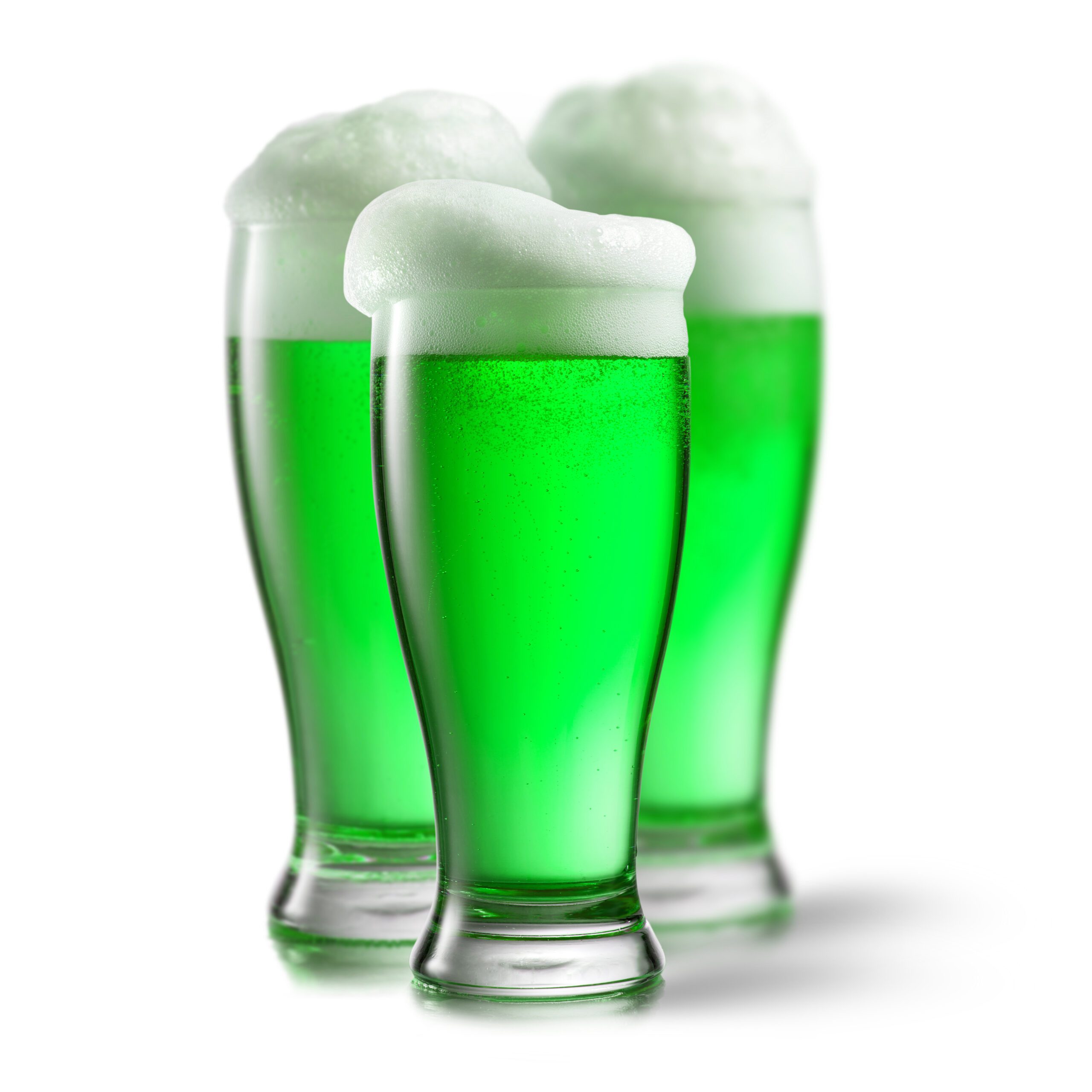Toxic Celebrations: Green Beer for St. Patrick’s Day
January 11, 2016
 592
592 
With St. Patrick’s Day just around the corner, some people are getting ready for a day and night of dancing, singing, and letting the green beer flow. But have you ever stopped to think about what all that green beer and celebrating can be doing to your wellbeing?
If you’re like most people, probably not.
Much like almost every other holiday, St. Patrick’s Day has become a celebration synonymous with drinking . . . whether you’ve got to get up for work the next morning or not. The true meaning of St. Patty’s Day and other special occasions (Cinco de Mayo, anyone?) seem to get lost in all the beer and partying, and for some people these “drinking holidays” can be a huge liability.
Binge Drinking, Toxic Food Coloring, and Other St. Patty’s Day Dangers
While a little green beer may be harmless, binge drinking the stuff could prove to be quite bad for you. Along with the obvious issues with binge drinking (such as its effects on your brain and liver), the food coloring used in green beer could contain toxins . . . depending on the kind that your pub of choice is using.
As a matter of fact, green food coloring was linked to bladder cancer at one point. And, several countries are still working to ban food coloring because of its toxic effects. Think that a few green beers on St. Patrick’s Day won’t make a difference? It can when you add the coloring in those green beers to the already over-the-top amounts that you consume on a day-to-day basis without even realizing it. There’s food coloring in much of what we eat everyday—500 times more than 30 years ago to be specific.
Along with the toxins in food coloring and the health effects of binge drinking, St. Patrick’s Day is also a day with significantly higher drunk driving incidents. Known as the most alcohol-fueled day of the year, statistics have shown that close to half of the traffic accidents on March 17th are the result of elevated blood alcohol levels.
Another risk that increases with binge drinking (like that experienced on St. Patrick’s Day) is the risk of sexual assault and sexually transmitted disease. It’s no secret that too much alcohol lowers inhibitions and impairs judgment, which is a recipe for disaster . . . especially when you get large groups of people together.
Will You Binge Drink on St. Patty’s Day?
Most people aren’t actually aware of exactly what amount of alcohol constitutes a “binge” when it comes to alcohol. Binge drinking is considered five or more drinks for males and four or more drinks for females, if consumed in a short period of time. It’s also important to note that the size of drink referred to doesn’t typically come close to what you may consider a serving size, especially on St. Patrick’s Day.
That’s something worth remembering before you head out to celebrate this March 17th.

A new study suggests that a widely used sugar substitute found in diet sodas, chewing gum, and low-sugar yogurt may elevate insulin levels. This could increase the long-term risk of heart disease. “Artificial sweeteners have infiltrated nearly all types of food, making it crucial to understand their long-term health effects,” said Yihai Cao, senior author […]

Diet Coke has long been a fan-favorite among soda lovers who want a fizzy, guilt-free alternative to traditional soft drinks. While its zero-calorie, zero-sugar label makes it seem like a healthier option, the reality is far more concerning. Despite its undeniable popularity, Diet Coke’s nutritional profile has raised red flags among health experts for years. […]

New study shows that embracing an anti-inflammatory, plant-forward diet can support cognitive function and help reduce the risk of dementia. What You Eat Shapes Your Brain The food you eat doesn’t just impact your body—it also affects your brain. Research suggests that eating an anti-inflammatory, plant-based diet can help improve memory, focus, and overall brain […]